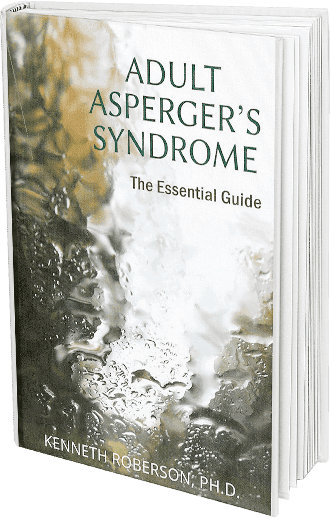
In a previous article I suggested that people with Autism Spectrum Disorder (ASD) are capable of having intimate relationships, provided they want it and are willing to put the work in to make it happen.
What about men with ASD? It’s one thing to have the capacity for intimacy but it can be quite another to want it. Do men with Autism Spectrum Disorder desire a close emotional involvement with other people? Is it rewarding enough that they will put the time and effort into ensuring it happens? What can be done, if anything, to motivate men to share their personal feelings, demonstrate caring, work to develop trust, and allow a degree of vulnerability?
I believe most men on the Autism spectrum want intimacy, particularly those higher functioning men who we consider to have Autism, as long as the limitations of ASD are understood and they are provided with the means of achieving intimacy within those limitations.
Let’s start with the premise that people want to be loved. Some may not admit it or show it in the usual ways, but it’s undeniable that everyone wants to be loved. Aspies (a common term for people with ASD) are no different. What is different is the fact that they lack communication skills, social skills and the ability to respond in kind to people’s feelings. Their social awkwardness and incomprehension of how others think or feel are the primary reasons why it is commonly assumed they care little about engaging intimately with others.
Generally speaking, men are raised with less focus on the emotional concerns of others, and this is true with male Aspies as well. Combined with the difficulty they have reading people’s signals and their incomprehension of traditional gestures of love and affection, they project a picture of insensitivity, lack of caring, and emotional invulnerability.
This picture is true, in the sense that the man with Autism Spectrum Disorder acts as I just described, but it is not true that he doesn’t want to care for others, share his feelings and allow himself to be emotionally vulnerable.
So, if he doesn’t appear to want emotional intimacy how can he be emotionally intimate?
As I implied earlier, two ingredients are necessary. The first is that you, as his partner, friend, colleague, or interested person, need to understand his limitations. If you understand how hard it is for him to comprehend your feelings and thoughts, you won’t take his actions personally. When you don’t take them personally you are less prone to being hurt and hurting back.
The second consideration is to work with him to create rules of engagement. These rules define the actions he needs to take to promote trust, vulnerability, acceptance and the sharing of feelings.
This is not as hard as it may seem. What you and he must do is put together a list of rules for intimacy. These rules might include:
- Holding hands for 10 minutes when on a shopping trip.
- Saying “I love you” at least once a day.
- Sitting together to watch a favorite weekly TV program
- Eating dinner together at least three times a week.
- Going for a walk together every other week.
- Texting often to ask how you are.
If this exercise in rulemaking seems cumbersome, overly controlling on your part, artificial, or simply too simplistic, just try it. See how it goes. You and your partner can modify it in any way you prefer but make the effort. It’s a step forward that will likely prove rewarding.
Reading just a little about men with Autism Spectrum Disorder is likely to leave you believing they have no interest in intimacy. Remember, this isn’t true, at least generally speaking. What is true, is that they don’t know how to be intimate. Like any skill, they need to learn how to do it, and they can go a long ways towards becoming intimate if you’re willing to help them learn how to.




